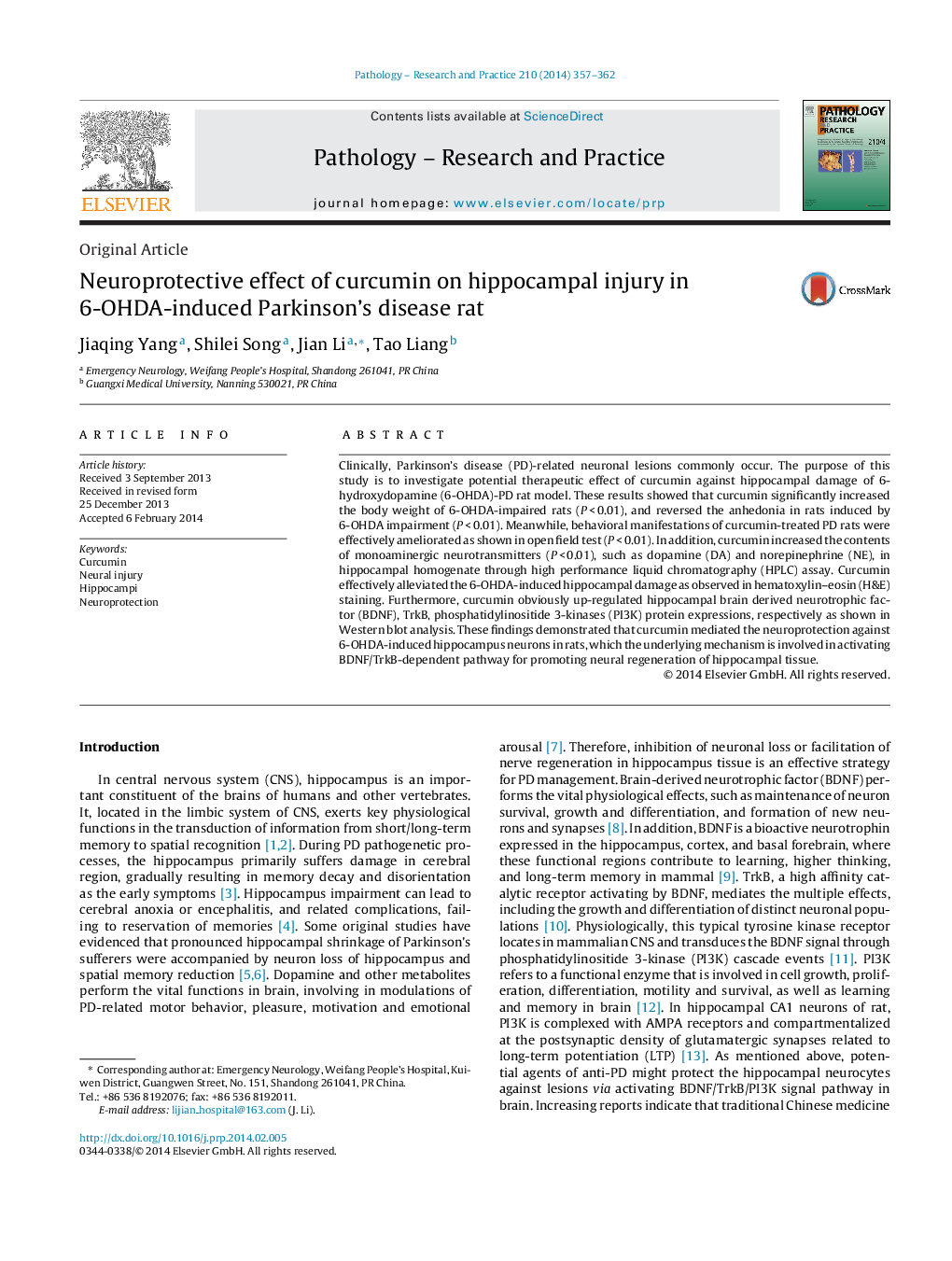| Article ID | Journal | Published Year | Pages | File Type |
|---|---|---|---|---|
| 2155398 | Pathology - Research and Practice | 2014 | 6 Pages |
Abstract
Clinically, Parkinson's disease (PD)-related neuronal lesions commonly occur. The purpose of this study is to investigate potential therapeutic effect of curcumin against hippocampal damage of 6-hydroxydopamine (6-OHDA)-PD rat model. These results showed that curcumin significantly increased the body weight of 6-OHDA-impaired rats (PÂ <Â 0.01), and reversed the anhedonia in rats induced by 6-OHDA impairment (PÂ <Â 0.01). Meanwhile, behavioral manifestations of curcumin-treated PD rats were effectively ameliorated as shown in open field test (PÂ <Â 0.01). In addition, curcumin increased the contents of monoaminergic neurotransmitters (PÂ <Â 0.01), such as dopamine (DA) and norepinephrine (NE), in hippocampal homogenate through high performance liquid chromatography (HPLC) assay. Curcumin effectively alleviated the 6-OHDA-induced hippocampal damage as observed in hematoxylin-eosin (H&E) staining. Furthermore, curcumin obviously up-regulated hippocampal brain derived neurotrophic factor (BDNF), TrkB, phosphatidylinositide 3-kinases (PI3K) protein expressions, respectively as shown in Western blot analysis. These findings demonstrated that curcumin mediated the neuroprotection against 6-OHDA-induced hippocampus neurons in rats, which the underlying mechanism is involved in activating BDNF/TrkB-dependent pathway for promoting neural regeneration of hippocampal tissue.
Keywords
Related Topics
Life Sciences
Biochemistry, Genetics and Molecular Biology
Cancer Research
Authors
Jiaqing Yang, Shilei Song, Jian Li, Tao Liang,
